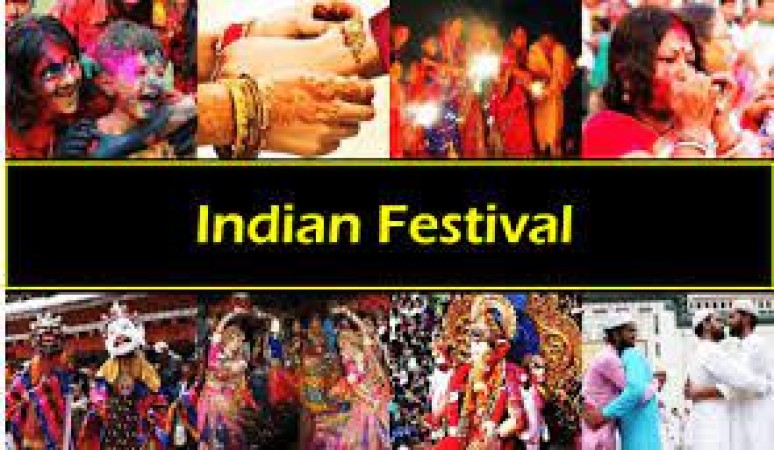
Celebrations have been an integral part of human culture throughout history. They are a way of commemorating significant events, expressing joy, and reinforcing social bonds within communities. Each celebration comes with its unique stories and rituals, which are passed down from generation to generation. In this article, we will explore the fascinating world of celebrations, delving into their stories, and understanding the rituals that make them special.
Cultural and Religious Celebrations
Many celebrations have deep cultural and religious roots. Traditional festivals often have origins in ancient practices, passed down through generations. These celebrations offer insights into a community's history, customs, and beliefs. Additionally, religious celebrations hold significant spiritual meaning, reinforcing the faith of followers and offering a sense of divine connection.
Seasonal Celebrations
Seasonal celebrations are closely tied to nature and agricultural cycles. They often mark the changing of seasons and the bountiful harvests. These celebrations have historical significance, as they reflect the human dependence on nature for survival. Rituals associated with seasonal festivities aim to express gratitude and ensure the continuation of favorable conditions.
National Holidays and Independence Days
National celebrations commemorate important historical events that shaped a country's identity. They are an expression of patriotism, unity, and national pride. Independence Days, in particular, symbolize freedom from colonial rule and the birth of a sovereign nation.
Family Milestones and Life Cycle Celebrations
Family milestones and life cycle celebrations are deeply personal and culturally diverse. Birth and naming ceremonies welcome new life into the world, while weddings unite individuals in love and commitment. On the other hand, funerary rituals provide a way to honor the deceased and find closure in times of loss.
Modern and Global Celebrations
The modern era has seen the emergence of global celebrations and international days. These events bring people from different backgrounds together to raise awareness about important social issues. Social media plays a significant role in spreading the message and fostering a global sense of togetherness.
Sports Events and Fan Celebrations
Sports celebrations are a unique form of collective expression. They embody the passion and camaraderie of fans and create a sense of belonging among supporters of a particular team or sport. Sports celebrations often become cultural phenomena, transcending geographical boundaries.
Folklore and Mythology in Celebrations
Folktales and mythological stories often form the foundation of festive narratives. These stories add depth and meaning to celebrations, connecting them to ancient beliefs and cultural heritage. Gods and heroes of mythology frequently become central figures in celebratory rituals.
Traditional Music and Dance in Celebrations
Music and dance are essential components of celebratory events across cultures. They serve as a means of expression, joy, and storytelling. Traditional music and dance bring a unique charm to each celebration, making them unforgettable experiences.
Culinary Traditions and Festive Feasts
Festivals are often accompanied by special culinary traditions and feasts. These festive foods are more than just sustenance; they hold symbolic meaning and are an essential part of cultural identity. Sharing meals during celebrations strengthens familial and communal bonds.
Decorations and Symbolic Representations
Decorations play a crucial role in creating a festive ambiance. They can range from simple ornaments to elaborate displays. Many decorations carry symbolic meanings, representing prosperity, good luck, or religious significance.
The Evolution of Celebrations Over Time
Celebrations have evolved significantly over the centuries. While some traditions remain unchanged, others have adapted to suit contemporary sensibilities. Innovations in technology, social dynamics, and cultural exchange continue to shape the way we celebrate.
The Universality of Celebrations
Despite their diversity, celebrations share common threads that connect humanity. They represent our shared emotions, values, and aspirations. Celebrations remind us of our inherent unity and the importance of cherishing our cultural heritage.
The Future of Celebrations
As the world continues to change, so will our celebrations. The future will likely witness a blend of traditional practices with new approaches, emphasizing sustainability and inclusivity. Celebrations will continue to serve as essential moments of joy, reflection, and human connection. Celebrations are an integral part of the human experience, providing an opportunity to rejoice, remember, and reinforce our bonds with one another. With each celebration comes a unique story and a set of rituals that give them meaning and significance. As we continue to cherish and pass down these celebrations, we preserve our cultural richness and embrace our shared humanity.
Codependency and Setting Boundaries: Promoting Individual Growth in Relationships
The Treasury of Petra: An Architectural Marvel in the Desert
The Majestic Angkor Wat: Exploring the Enigmatic Temple Complex in Cambodia